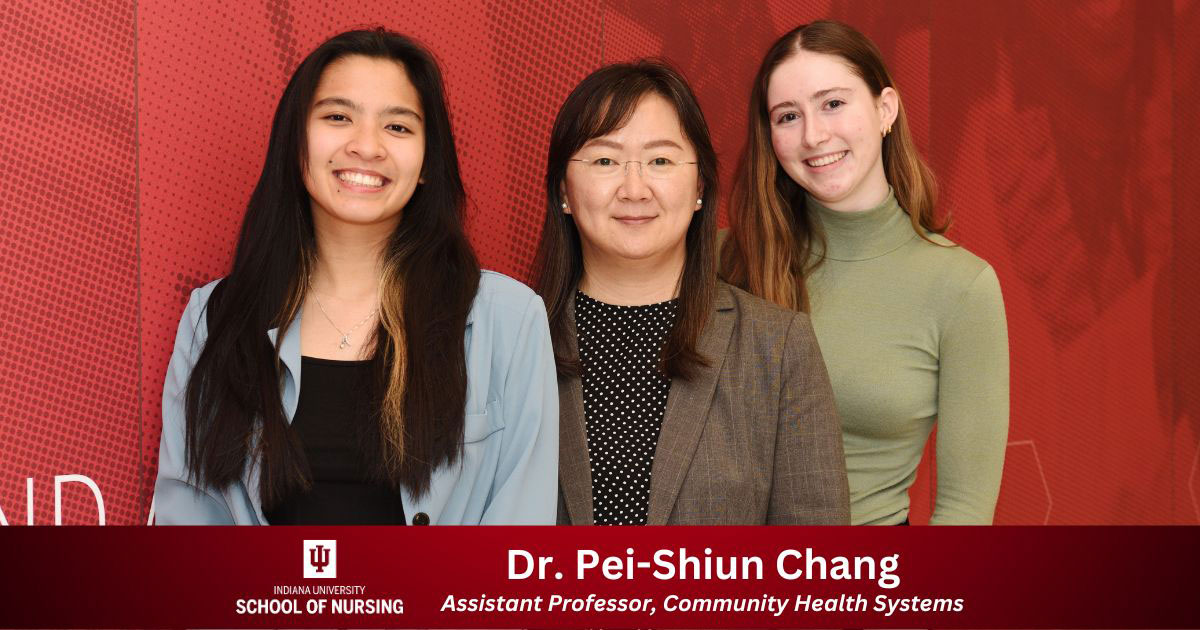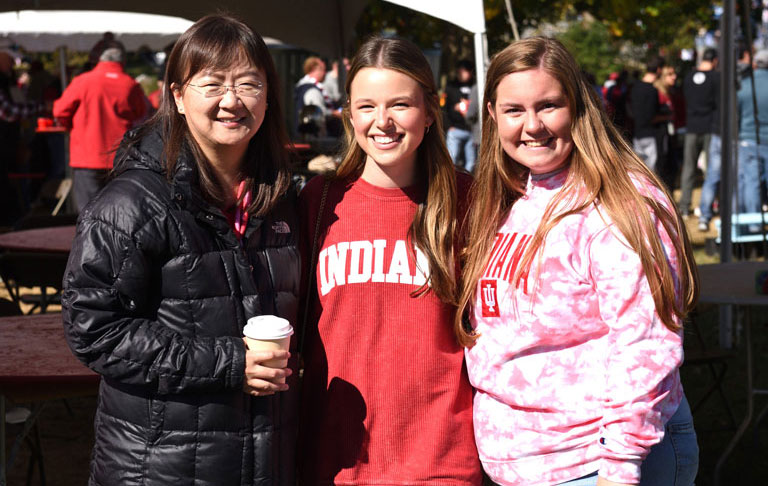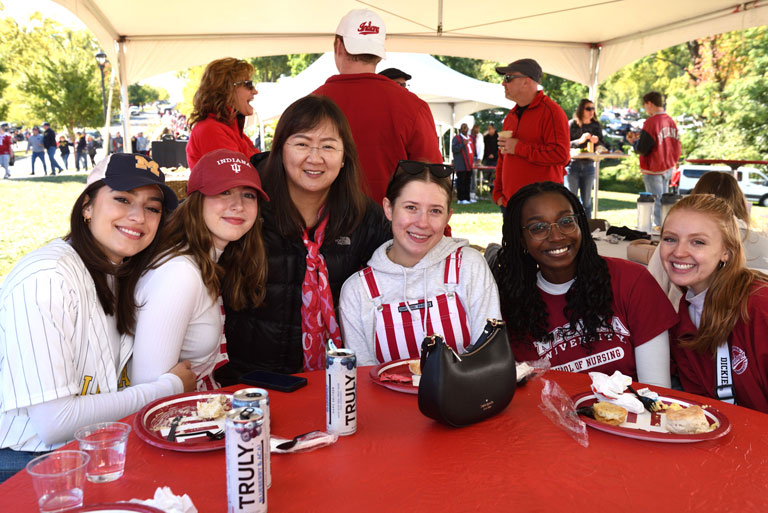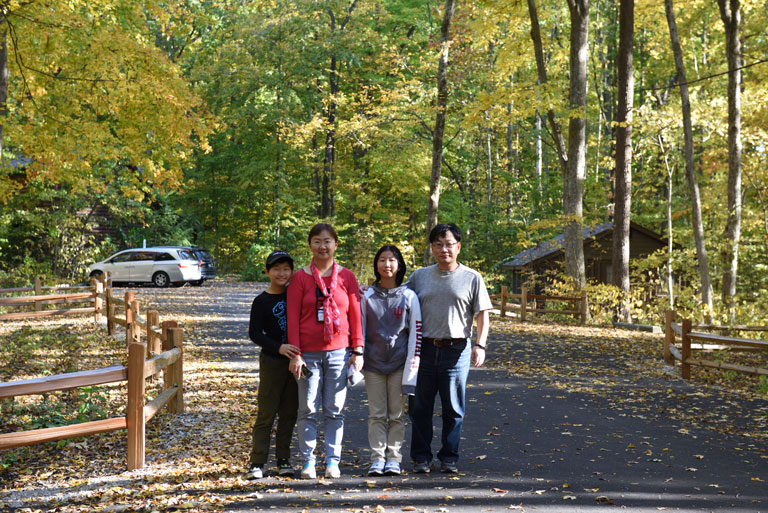Meet Pei-Shiun Chang, PhD, RN, ACNP-BC, and Assistant Professor in the Community Health Systems department for the IU School of Nursing. (She is pictured in the center of the above photo.) Dr. Chang received her BSN from Chung Shan Medical University in Taiwan and her MSN and PhD from Yale University. Dr. Chang's areas of expertise include interventional research, Chinese traditional medicine exercise interventions, meta-analysis, and health outcomes.
What fascinates you most about the research you do?
My research focuses on using Qigong (pronounced chee-gong) exercise, a mind-body exercise, to promote physical and emotional well-being in older adults. Qigong exercise consists of deep controlled breathing, moving meditation, and gentle body movements. The reason that I am passionate about Qigong is that it makes me keep doing this exercise. Before studying Qigong exercise, I was not an exercise person! Qigong movements are so easy to do and learn. It makes me feel calm and relaxed every time I do it, while keeping me physically active. Through my studies, the potential of Qigong exercise in promoting older adults’ health is not just for physical function, but also emotional well-being. I believe that Qigong exercise can be easily adapted in communities to become a powerful tool that keeps older adults healthy and independent at home.
What is something you wish people knew about your area of study/research?
The meditation component of Qigong exercise is called "moving meditation." If you have tried meditation before and felt it was difficult to sit still and meditate, you are not alone. But try Qigong's moving meditation, and you may be surprised. Many of my older study participants feel calm and relaxed right after their first Qigong intervention session. I would say that the best time of the day to do Qigong exercise is in the afternoon after you have been sitting and working in front of your computer for hours.
What is something most people might not know about you, or what is one of your hidden talents?
I am very good at singing. This is verified by all my friends, classmates and coworkers who have heard me sing. Of course, the songs must be in my language, Taiwanese. Another hidden talent that I recently found and that is more useful is that I can usually find a way to convey and explain complex concepts to my students. This especially comes in handy while teaching pharmacology and pathophysiology.
Anything else that you would like to share?
I like to talk to people. Each person is a living encyclopedia. I can learn so much from their variety of life experiences that result in different perspectives and wisdom. This is how I got inspired to investigate the potential of Qigong exercise in promoting the health of older adults.






